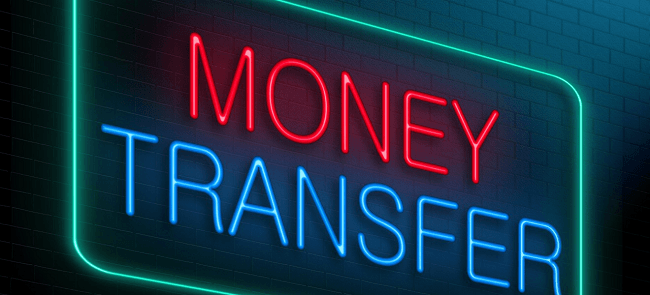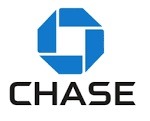 Safety and security are some of things we tend to bear in mind especially when dealing with transferring large amounts of money. Checks and cashier checks are the traditionally way to go when sending money to other accounts.
Safety and security are some of things we tend to bear in mind especially when dealing with transferring large amounts of money. Checks and cashier checks are the traditionally way to go when sending money to other accounts.
Of course, being a widely used method of transferring money, it does come with many risks. Checks can be bounced due to insufficient funds and it can be lost or stolen. Similarly, cashier checks may also not process if the funds are already pulled from the account.
Nowadays, nearly everything we do is online. Transferring money electronically may ultimately be the better alternative when sending large amounts of money to different accounts. Not only is it faster than traditional checks, it is safer due to the reduced risks of not having enough funds or having the transfer being lost or stolen.
Electronic transfers eliminates the medium that initiates the transfer and are taken in the form of either ACH, which stands for Automated Clearing House, or a wire transfer. So what is really the difference between the two? Make sure you read on to learn more about it!
 | BMO Bank Checking: Open a new BMO Smart Advantage Checking Account and get a $350 cash bonus* when you have a total of at least $4,000 in qualifying direct deposits within the first 90 days. Learn More---BMO Checking Review *Conditions Apply. Accounts are subject to approval and available in the U.S. by BMO Bank N.A. Member FDIC. $4,000 in qualifying direct deposits within 90 days of account opening. |
 | Chase Total Checking®: Earn $300 bonus when you open a new Total Checking® account and make direct deposits totaling $500 or more within 90 days of coupon enrollment. Apply Now---Chase Total Checking Review |
 | Chase Private Client: Enjoy up to $3,000 bonus when you open a new Chase Private Client Checking account with qualifying activities. Get more from a personalized relationship when you open a new Chase Private Client Checking account with qualifying activities. Learn More---Chase Private Client Review |
ACH Transfer
ACH, or formally known as The Automated Clearing House, is a system that would be most similar to a paper check without the physical paper check itself. It is one of the most popular forms of electronic transfers and is basically just a digital check that directly transfers the funds from one account to another.
An ACH is one of the largest payment systems in the U.S. and is commonly used in bill payments, direct deposits, external transfers and person-to-person payments commonly used in third-party apps such as Chase Quick Pay, PayPal, and Venmo.
ACH transfers are more commonly used for automated payments as they usually occur within several business days (on average 2-3 days) to clear and there is a smaller fee for ACH transfers compared to wire transfers.
Generally, there are two types of ACH transfer which include debit or credit transactions. Debit meaning funds being pulled from the account, so fund being taken from the account based on what you owe, and Credit meaning allowing funds to be pushed online to different accounts.
Wire Transfer
Wire Transfers are used to transfer funds directly from one bank account to another, requiring only an account and routing number. It’s an immediate process, so the transfers are processed in real time.
Although, wire transfers are significantly faster than ACH transfers, the speedy service also comes at a higher price. With fees averaging at a staggering $20 to even $30+ to send money, it might be worth it especially when you are running on a time crunch.
Funds are usually wired within the same day the of when it was initiated and can be as fast as hours or even minutes to complete processing.
Wire transfers may be best for urgent situations, the only risk is that there is no way to verify the sender and the recipient. The idea of an immediate transfer is great until you take into the account of the risk of identity fraud.
Another risk is that you are not protected in the same way as an ACH transfer. If you pay for an item through a wire transfer, there is no guaranteed help if the item is defective, damaged, or is not what was promised.
| Attribute | ACH | Wire |
| Transfer Speed | 2-3 business Days | Same day or 1 Business day |
| Certainty & Safety | Transfers into your account can be reversed | Transfers cannot be reversed
(recipient can withdraw the funds immediately) |
| Cost to Send & Receive | Almost always free | $10 to $35 domestic
(cost is more for international) |
| Process | Generally can be setup online and provide the following:
Bank names, Account numbers, ABA routing numbers |
Generally can be setup online and provide the following:
Bank names, Account numbers, ABA routing numbers (some institutions require additional steps for wire transfers – phone verification or submit a form) |
| Usage | Small, frequent, non-mission-critical payments | Speed and certainty are crucial |
What Are The Risks?
Normally, wire transfers and ACHs are secure transactions, especially if you’re on the receiving end of one. However, they can be very difficult and sometimes impossible to reverse.
Consider these risks when making your transactions:
Scams
We’ve all experienced suspicious phone calls or emails, and they are more evident when they urge you to make a quick decision. If they claim to be an authority figure like the government or a state official, offer to call them back at an official number, not the one they give you.
Account Takeover
When someone takes control of your account, they generally get ahold of your information by stealing your identity or through email phishing.
Impersonation
Criminals will try to impersonate real merchants to try and get you to give them your personal information. They may send a letter or an email to inform you of an overdue payment, but the instructions may lead you to send your money to a fraudulent account.
Emails
As we mentioned above, criminals may try to send you instructions to pay off any debts through your email that leads to a fraudulent account. Always call the person or institution to make sure before sending any money.
 |
 |
Bottom Line
Overall, both are acceptable forms of money transfers. Typically, ACH are the best forms of payments and are more commonly used for bill payments, payroll, or any form of recurring payments. Being both convenient and inexpensive, it makes sense to wait those few extra days for a secured transfer.
Wire transfers, however, work a bit differently for the fact that it should be used under dire circumstances where funds are needed immediately, but you also take that risk of being unable to verify the sender or the recipient.
Above are the general points we touched up on ACH vs Wire transfer and understanding the differences. Feel free to comment below and let us know your ACH or Wire Transfer experience.
We would love to keep you posted on other bank news and if you would like to learn more, check out our review on Credit Unions vs. Banks. Also make sure to browse our Bank Bonuses page to stay updated on all the latest promotions nationwide and earn some extra cash bonuses!




Thank you….